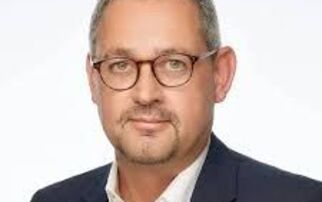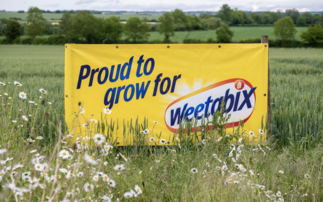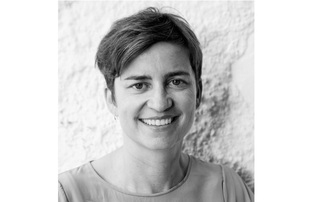From paying school fees to proving identities, Mastercard is exploring how digital payments and online services can make the world a more equal place
"Nobody wakes up in the morning thinking I wish I had access to financial services - they think 'I wish I had money to pay for school or hospital fees'. But access to financial services underlies all of that," says Olga LaBelle, vice president of humanitarian and development at Mastercard.
A simple bank account can improve equality by allowing people to have savings so they can invest in education, healthcare, home or business, she says. It allows people to send and receive payments, store money and potentially gain other services such as credit and insurance. But close to 1.7 billion people - one third of adults worldwide - lack a bank account, according to the World Bank.
Mastercard has been working on enabling disadvantaged communities to access financial services for some years through its Mastercard Lab for Financial Inclusion in Nairobi. It seeks to help 100 million people plan financially for the future, working towards SDG10's sub-targets to promote social and economic inclusion, and to ensure equal opportunity.
Financial inclusion is also important as it allows people to participate in the digital economy. Mastercard has also decided to tackle the gap in access to digital services. Some 3.4 billion people - almost half the global population - struggle to access basic needs, such as food and healthcare, and are excluded from institutions and services that could help them, it notes. As the world quickly digitizes, the lack of access these communities already experience will exacerbate and increase inequality, Mastercard believes.
Day-to-day transactions in many countries are still paper-based, LaBelle explains. This is expensive and labour-intensive. Digital tools and channels can reduce transaction costs, as well as providing data to help institutions improve access to services. For example, banks could better provide credit to micro-entrepreneurs if they knew how much business they do each day.
In Uganda, Mastercard has worked with the Ugandan Ministry of Education and Sports, UNICEF Uganda and Yo Uganda to introduce a new payment platform allowing parents to pay school fees in small instalments through their mobile phones.
Students are registered on the platform with a unique identity linked to their parents, who can then make payments directly to the school on their phones through an app called "Kupaa", which means "to fly very high" in Swahili. Previously, parents were forced to carry large sums of money to school and banks, often far away from their home.
Paying school fees are one of the strongest financial barriers to education, according to the World Bank. "There's a huge cash-flow issue because parents have to pay at the start of the school year, but if you're not going to sell your crop until a couple of months later, that makes it incredibly difficult. Children, especially girls, get taken out of school when their parents can't pay," LaBelle says.
The platform also allows schools to manage incoming and outgoing payments in real-time, and helps the government track grants and subsidies assigned to schools, ensuring they are delivered quickly and efficiently.
Mastercard has also discovered that one of the biggest barriers to inclusion in a digital world is a lack of ability for individuals to prove who they are. At least one billion people worldwide have no formal identity - no passport, no birth certificate, no government-issued paperwork, says Olga. This means they have no way of verifying who they are when registering for services such as education or healthcare.
"Right now, I can go to my village micromerchant and if I don't have enough money, he will give me a form of credit. That works because we live in the same village, we know each other. But as you move into digital transactions between people who don't know each other, identity verification is incredibly important," she adds.
Identity allows governments to deal with unknown individuals, and is therefore the foundation for participating in the economy and improving one's livelihood, Mastercard believes. However, many digital identity tools are expensive to set up and run. Even where they exist, many are provided in a silo, meaning that an individual must register multiple times for different service providers.
The majority of people lacking identity are women, making tackling this problem key to solving gender inequality, in tandem with tackling inequalities associated with lack of access to health, education and financial services.
In Nigeria, Mastercard has worked with UN Women to develop a national ID card that doubles as an electronic payments card. It also has a partnership with Mercy Corps, a humanitarian organisation, to register 18,000 Nigerian girls and women to receive an eID card, which for many is their first formal identity.
According to LaBelle, one of the greatest challenges is the scale of innovation required to create a new technology able to deal with different types of transactions, plus identity issues, often in an environment without connectivity.
To get around the lack of internet access, Mastercard enables transactions via a secure, chip-encrypted card that stores information locally to enable transactions to take place. "There's a huge opportunity to provide services, but it requires a lot of innovation," she says.
A bedrock of services that in developed countries is taken for granted - proof of identity, online bank transactions, access to credit - is essential for lifting people out of poverty in developing countries. Creating a digital network of services accessible to all is the foundation of that level playing field SDG10 strikes to build.





